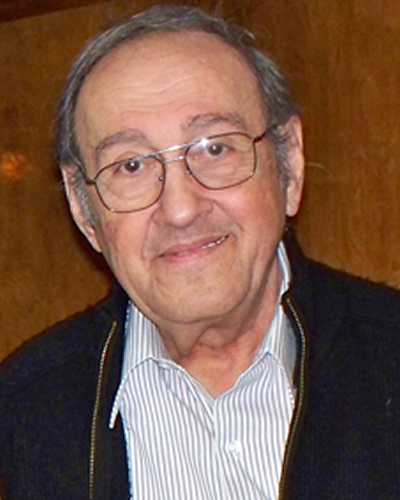 Yousef Shahab, an Iranian-American sound engineer, passed away in Los Angeles on Wednesday, April 17, 2013. “I met Mr. Shahab in the early seventies when we were with National Iranian TV and Radio. He was a master in his trade—Sound Engineering. When I think of Mr. Shahab, I always remember him smiling. He was a very kind man and, even when he was struggling with problems of living away from Iran in the U.S., he never changed his manners. I will always remember that Shahab, who was struggling financially himself, helped me and my family during a hard time we were experiencing. A few years ago when he was fighting with cancer, I spoke to him a number of times. Even in his condition, it was Yousef Shahab that was giving me hope to deal with the problems of life. In these troubling times, we will miss the kind smiles of Mr. Shahab” said Bijan Tehrani, Editor of Cinema Without Borders.
Yousef Shahab, an Iranian-American sound engineer, passed away in Los Angeles on Wednesday, April 17, 2013. “I met Mr. Shahab in the early seventies when we were with National Iranian TV and Radio. He was a master in his trade—Sound Engineering. When I think of Mr. Shahab, I always remember him smiling. He was a very kind man and, even when he was struggling with problems of living away from Iran in the U.S., he never changed his manners. I will always remember that Shahab, who was struggling financially himself, helped me and my family during a hard time we were experiencing. A few years ago when he was fighting with cancer, I spoke to him a number of times. Even in his condition, it was Yousef Shahab that was giving me hope to deal with the problems of life. In these troubling times, we will miss the kind smiles of Mr. Shahab” said Bijan Tehrani, Editor of Cinema Without Borders.
(The following part is from a film society web site) During the high school years of Mr. Yousef Shahab he became interested in playing the accordion which was a very popular instrument in Iran. He took lessons and continued playing for many years entertaining a very supportive family and friends. Eventually he became the conductor of school orchestra. The father of a classmate of his who was the producer of the Iranian National Radio’s Children Program was present at one of the school performances and asked Mr. Shahab to work with him on his program.
While working for the Children’s Program, Mr. Shahab became fascinated with the production equipment. Upon graduating from high school, he went to Germany to study as a civil engineer. But changed his mind and attended the Recording Engineering School of Polydor Records, a non-classical label of Dueche Gramaphon. He completed the three year program in record time. During this period, he also obtained hands-on experience at the Polydor’s studio.
Upon his return to Iran, Mr. Shahab worked for the Faculty of Dramatic Arts, producing background music and sound effects for the production of stage and TV plays. After a year, he was also working as recording engineer for the music department of Faculty of Dramatic Arts.
In 1964, The National Iranian Radio and Television (NIRT) was established. Mr. Shahab joined this organization and within three months, he was appointed as their chief audio engineer. In 1969, he moved to California and found employment with Audio Digest Foundation.
In addition to working on numerous educational, corporate, and documentary film projects, he was the audio recording engineer of The Report, a film by Abbas Kiarostami, which was the first Iranian narrative film, entirely shot in sync-sound. *
Mr. Shahab also had the opportunity to work as audio recording engineer on three other films in America: Mission and Checkpoint by Parviz Sayyad and Guests of Hotel Astoria by Reza Allamehzadeh.During the high school years of Mr. Yousef Shahab he became interested in playing the accordion which was a very popular instrument in Iran. He took lessons and continued playing for many years entertaining a very supportive family and friends. Eventually he became the conductor of school orchestra. The father of a classmate of his who was the producer of the Iranian National Radio’s Children Program was present at one of the school performances and asked Mr. Shahab to work with him on his program.
While working for the Children’s Program, Mr. Shahab became fascinated with the production equipment. Upon graduating from high school, he went to Germany to study as a civil engineer. But changed his mind and attended the Recording Engineering School of Polydor Records, a non-classical label of Dueche Gramaphon. He completed the three year program in record time. During this period, he also obtained hands-on experience at the Polydor’s studio.
Upon his return to Iran, Mr. Shahab worked for the Faculty of Dramatic Arts, producing background music and sound effects for the production of stage and TV plays. After a year, he was also working as recording engineer for the music department of Faculty of Dramatic Arts.
In 1964, The National Iranian Radio and Television (NIRT) was established. Mr. Shahab joined this organization and within three months, he was appointed as their chief audio engineer. In 1969, he moved to California and found employment with Audio Digest Foundation.
In addition to working on numerous educational, corporate, and documentary film projects, he was the audio recording engineer of The Report, a film by Abbas Kiarostami, which was the first Iranian narrative film, entirely shot in sync-sound. *
Mr. Shahab also had the opportunity to work as audio recording engineer on three other films in America: Mission and Checkpoint by Parviz Sayyad and Guests of Hotel Astoria by Reza Allamehzadeh.

